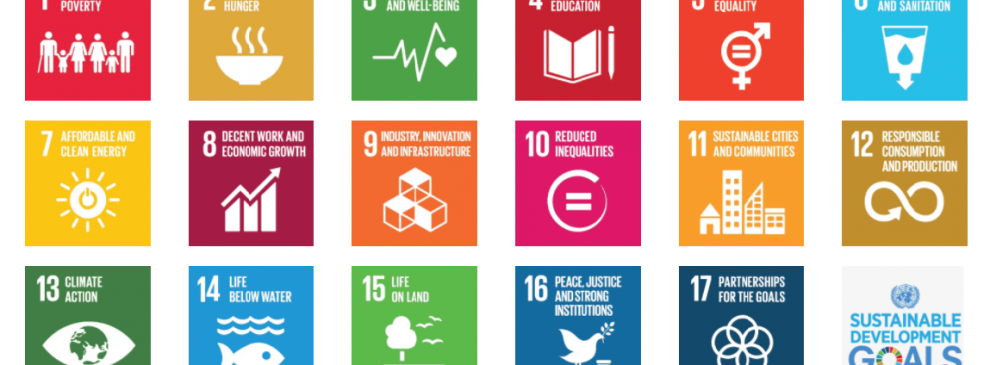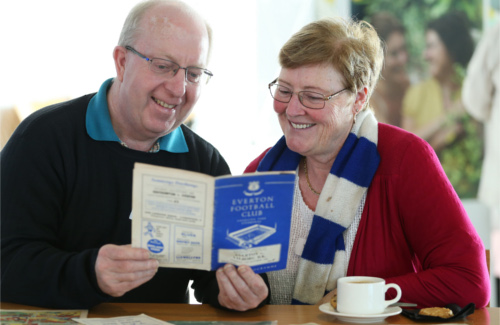Researching digital heritage and cultural wellbeing in the international policy sphere
Added on Thursday, November 9th, 2017
…
Through our work at the ICC, we can observe that health and wellbeing are being targeted as priority agendas across the policymaking spectrum. United Nations (UN) sustainable development goals highlight health and wellbeing as a top three priority. The latest Work Programme for Horizon 2020 from the European Union, which was launched on Friday 27th October, covering the period of 2018-2020 includes Health Demographic Change and Wellbeing as one of the priority areas of the Societal Challenge pillar. In particular, this addresses the need for a large-scale implementation of digital innovation for health and care in an ageing society. This call appeals to the role of information and communication technologies (ICT) to alleviate the pressures undermining the long-term sustainability of existing health care models. This includes facilitating tools and platforms for person-centred care solutions, integrating health, social or community care and informal care that support independent living solutions, allowing citizens to live safely and independently at home.
Equally in the UK and from a cultural policy perspective, the 2017 All-Party Parliamentary Group on Arts, Health and Wellbeing Inquiry Report (All-Party Parliamentary Group on Arts, Health and Wellbeing, 2017, p. 22) appeals for art and cultural activities to be used more extensively in ‘preventative and restorative strategies and [be] fully integrated into health and social services’ aiming to ease some of the pressures on both systems. The EU 2015-18 Work Plan for Culture, and the Department of Culture Media and Sports Culture White Paper (2016) address the need to find new solutions for cultural organizations’ financial sustainability, with appeals for cross-sector collaboration to stimulate innovation, social inclusion, and the production of evidence-informed research outcomes to enlighten policies and decision-making.
Since 2013, the ICC’s Crossing Boundaries: The value of museums in dementia care has been researching the impact of House of Memories, an award-winning dementia awareness programme led by National Museums Liverpool (NML) in the UK, which makes use of museums and their collections as conversation starters, supporting person-centred care practices, and developing better strategies to live well with dementia. We are aligning this research to dementia-specific policies, including the World Health Organization Global Action Plan on the Public Health Response to Dementia (2017), which prioritizes dementia awareness, diagnosis, care strategies, and the need for shared research-based knowledge. The My House of Memories app, designed for and with people living with dementia, facilitates access to museum collections and objects from across the 20th century, which are facilitated with audible stimulation such as sounds, music and oral descriptions. More than an easy-to-use way to help people living with dementia to explore objects that resonate with them, the My House of Memories app, which has already been downloaded by more than 11 000 people worldwide, has been a flagship tool to bridge individual heritage and cultural heritage, an example of how digital cultural heritage can contribute to improve individuals’ subjective perceptions of health and wellbeing.
| Since 2013, the ICC’s Crossing Boundaries project has been researching the impact of House of Memories, an award-winning dementia awareness programme led by National Museums Liverpool in the UK. |
…
Cultural organizations, such as museums, have dedicated their main remit to the preservation, interpretation and dissemination of cultural heritage in contemporary societies to foster a better knowledge of our past and for the benefit of present and future generations. It is not surprizing that with the accelerated pace of technological evolution, ICT have become key levers for remarkable breakthroughs in this field. However, Crossing Boundaries research demonstrates that almost all (91%) informal (family and volunteer) carers that took part in House of Memories had never used a museum for memory or reminiscence activities and the majority of them (75%) had never used software or an app for the same purpose before House of Memories – the full research report can be consulted here. In this sense, it is crucial to foster the awareness, research and dissemination of strategies for digital cultural heritage experiences that have demonstrable health and social outcomes that reflect the preferences of people with dementia, as well as improve the quality of life for their carers and the broader community.
As part of this European and UK research agenda, the Crossing Boundaries team was invited to participate in two key network meetings: a COST Action workshop dedicated to Cultural Heritage in the Digital Era in Brussels, 25th October; and the Cross Council Mental Health Networking event on 31st October in London. (COST is the longest-running European framework supporting trans-national cooperation among researchers, engineers and scholars across Europe.) Both events are results of this pressing agenda and aim to overcome knowledge gaps, reduce duplicate research activities, create links and synergies to defragmentation of knowledge, foster cooperation among stakeholders, share success stories, effectively leveraging research by aligning efforts and increasing awareness of the different funding opportunities. It is a starting point in bringing together various disciplines and actors in the field with the aim to create and consolidate national and European partnerships.
Two major features appear from both networking events: i) the need for evidence-informed research outcomes and how those impact on broader communities, enlighten policies and decision-making; ii) the importance of the role of ICT, particularly through joining up actions in procurement of innovation and scale-up outcome-based innovative digital health and care solutions.
Thus, through a culture of open science, the role of research as we see it through our work in the dementia field is to demonstrate the impact of artistic and cultural interventions in preventing and postponing longer-term conditions such as frailty and subsequent dependence on acute medical interventions. A comprehensive strategy towards a healthy and health-creating society is required, particularly through technological infrastructures that support efforts to link broad and deep data in all interested countries. The strategy should encourage collaborative efforts that can better define the value of extensive and intensive research strategies and linkages.
To sum up, several policy-level bodies and documents address the importance of evaluation, knowledge production and dissemination on impact, social value, and outcomes of high technological culture-led interventions on health and wellbeing; and at the same time, advocate cross-sector collaboration in dementia awareness and care as a means of facilitating economic sustainability for cultural and health sectors.
Already, looking beyond 2020, the next (9th) European Framework Programme for Research and Innovation, most likely to cover the period 2021 – 2027, should provide sufficient funding for bottom-up, inclusive, and multidisciplinary approaches, ensuring scientific and technological excellence, and encouraging involvement of the wider society along the whole process of production and dissemination of knowledge. Thus, research impact will come as part of the core of the scientific debate as a way to demonstrate the importance of social science.










